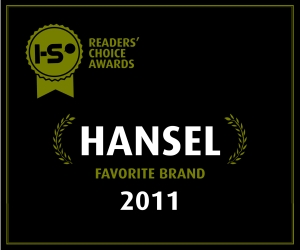I was spoiled as a kid. I was an only child in a working class family in Chiang Rai. My dad was a security guard and my mom a tailor.
Even though my parents weren’t rich my father worked to put me in private school because he wanted the best for me.
I love to read because my parents read. I inherited this habit from them. My mom would teach me everything she learned. She would tell me about Vincent van Gogh, his famous sunflower paintings and how he cut his own ear off. My father loves classic Chinese novels, so I grew up with those, too.
Private school was a strange world for me because I was a regular boy but all my friends were rich. They introduced me to new stuff: music videos, trendy shoes, hip-hop. I fell in love with hip-hop.
I dreamed of being a prosecutor because I loved to watch the TV series Pao Bun Jin (Bao Zheng) and wanted to uphold justice. I felt that as a judge, you just can’t do as much to help people. But a prosecutor can actively seek evidence to help them.
I studied law at Ramkhamheang but, despite loving the law, I discovered that I have no talent in this field. I dropped out after meeting Joey Boy.
Meeting Joey was like a movie for me. I had tapes of every Thai hip-hop artist and he was my idol. I knew he had a TV show at Channel 7 so, even though I was in Bangkok for the first time in my life, I decided to catch a bus to see him, get his autograph and give him my demo hip-hop album. I even cried when I met him.
Joey called me and asked me to join their concert at FAT fest where I sang the first song I’d ever written, called “I Hate RS.” People really loved it and Joey signed me onto the Gancore Club.
I had a bad temper when I was a teenager. I used to kick my TV because I couldn’t stand watching Dome-Pakorn Lum’s music videos.
I wrote songs about my contempt for certain things in the world. I felt the world sucked, with murders, bad news, also the divorce of my parents, so I wanted to destroy it—or at least be a rebel.
I became less irreverent after I was scolded about wearing flip-flops on stage at a mini-concert. I thought, “What the hell? What difference does it make if I wear flip-flops on stage?” My senior at Gancore pointed out that hundreds of people put in months of work to prepare everything for me to be on stage for just five minutes, and asked if this was how I wanted to repay them.
I used to eat cat food from my neighbor’s cat. I had no money. I told my mom that I was going to stop studying and be an artist and that she should stop sending me money.
I didn’t get any jobs for a year. I used all my rent money to eat. After six months, my label found out what was going on and staged a concert to pay my rent.
I am just a guy who loves to sing hip-hop. I don’t actually have a hip-hop lifestyle like other hip-hop artists.
I believe that hip-hop music will change the world. I will change the world with my songs. I don’t know when it’s going to happen but it’s a project that I plan to do before I die.
I chose to sing “Goodnight” with Thee Chaiyadeg and dedicate it to soldiers who fight in the South, because I knew that Thee was the only person who could soothe Thai people.
I think the government hasn’t done enough to fix the Southern problem. It’s true that it’s a historical conflict but if we don’t start to fix it now, when will it finish?
In a war, no matter what side you’re on, there can only be defeat.
I think Bangkok was like a teacher. It taught me from my mistakes. It made me more street savvy. It made me mature enough to be the head of my family. Now I can buy a condo for my dad and send money to my mom.
If I could be Bangkok governor I would make a place where people can protest, scream and destroy stuff as much as they want.
Love is the least serious thing in my life.
A microphone is all I want. Before I had so much ego. Now I know that every award I get will go on to someone else anyway.
My philosophy is to just take a breath. That means you’re still alive. I used to have tons of philosophies but eventually they all just make your head heavy. Now I have just one.
Everyone wants to achieve nirvana. They just haven’t realized it.
























